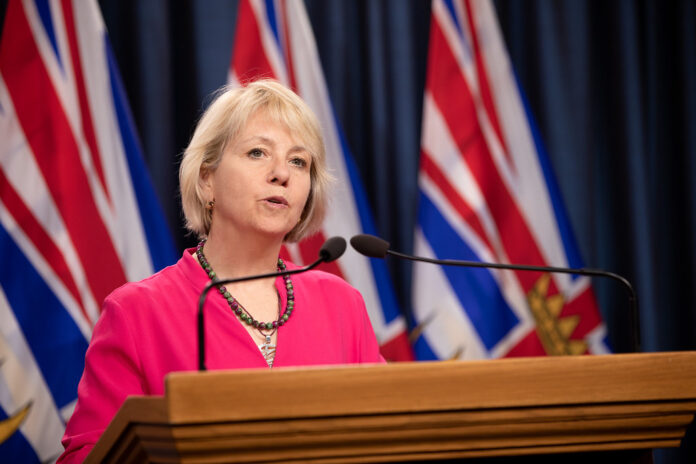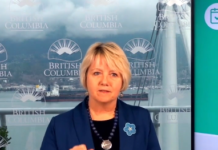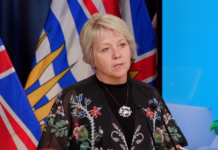THE first cohort of registered nurses (RNs) is on track to begin prescribing medications for treatment of opioid use disorder, as part of B.C.’s leading-edge overdose response plan.
Thirty RNs and registered psychiatric nurses (RPNs) will complete their training this month to prescribe buprenorphine/naloxone (commonly known as Suboxone), which is a first-line opioid agonist treatment (OAT) medication. This is the first step in a phased approach to expand RNs and RPNs’ scope of practice to include prescribing addiction treatment medications. It represents a significant change in B.C.’s health-care system and an important move to better support people in under-served, rural and remote areas.
“We are coming up on five years since British Columbia declared overdose a public health emergency, and more than 6,000 people have died because of toxic street drugs since that time,” said Dr. Bonnie Henry, Provincial Health Officer. “The COVID-19 pandemic has put people who use drugs at much higher risk for overdose. This crisis isn’t unique to our province – it’s a national issue – but B.C. is breaking ground when it comes to our response. I want to thank the nurses who have stepped forward to blaze this trail and help build B.C.’s health-system capacity to reach more people and save lives.”
This change follows Henry’s public health order to authorize RNs and RPNs to prescribe some controlled drugs and substances. RNs and RPNs now join family physicians, psychiatrists and nurse practitioners who are already prescribing OAT medications, such as Suboxone. Training will continue with additional cohorts and will advance to include other medications, such as slow-release oral morphine and methadone, to meet the needs of more patients.
“Too many people in our province are grieving the loss of someone they love, and far too many people remain at risk of overdose. Highly toxic street drugs are rampant, and we must separate people from these dangerous, unpredictable drugs,” said Sheila Malcolmson, Minister of Mental Health and Addictions. “Expanding access to addiction treatment medications is essential to getting a handle on this crisis. We are building our capacity to do this by balancing urgent action with careful implementation to ensure patient and practitioner safety every step of the way.”
Since Henry’s order was made, the Province and its partners have been working to meet the conditions in the order. This includes creating regulatory changes and developing the protocols, systems and comprehensive training plans needed from the ground up. As B.C. is the first province in Canada to authorize RNs and RPNs to prescribe controlled drugs and substances, this work has been complex, as it involves many aspects of the health-care system and nursing practice.
Given the complexities of opioid use disorder and OAT, Henry’s order stated that RNs and RPNs must meet numerous requirements before they can begin prescribing. This involves completing training established by the BC Centre on Substance Use, including in-person mentoring with experienced prescribers. Additionally, work has been happening behind the scenes to create the necessary prescribing standards through the BC College of Nurses and Midwives and establishing the regulatory requirements needed for RNs and RPNs to diagnose, order, refer and prescribe.
The first cohort of nurses, representing every health region, have met these requirements – the first milestone of many to come.
As a separate and complementary initiative to this work on nurse prescribing, British Columbia is also working as quickly as possible to expand access to safer pharmaceutical alternatives to toxic street drugs. B.C. is leading the country on this work, innovating from the ground up with patient safety prioritized every step of the way. In time, RNs and RPNs may advance their prescribing practice to include a wider array of pharmaceutical options.
Enhancing B.C.’s response to the overdose crisis is an integral part of A Pathway to Hope, B.C.’s roadmap for building the comprehensive system of mental health and addictions care British Columbians deserve.
Quick Facts
* Currently, more than 23,000 people are receiving some form of OAT in B.C. – the most ever.
* Due to the increasingly toxic supply of illicit street drugs resulting from the pandemic, the Province continues to scale up its response with a $10.5-million investment to increase access to overdose prevention services. Funds have flowed to health authorities, and they are in the process of implementing new services provincewide.
* The Province is expanding access to addiction treatment and recovery services. This includes $36 million to double youth treatment beds and $13.5 million to increase adult beds throughout B.C., with more to come.













